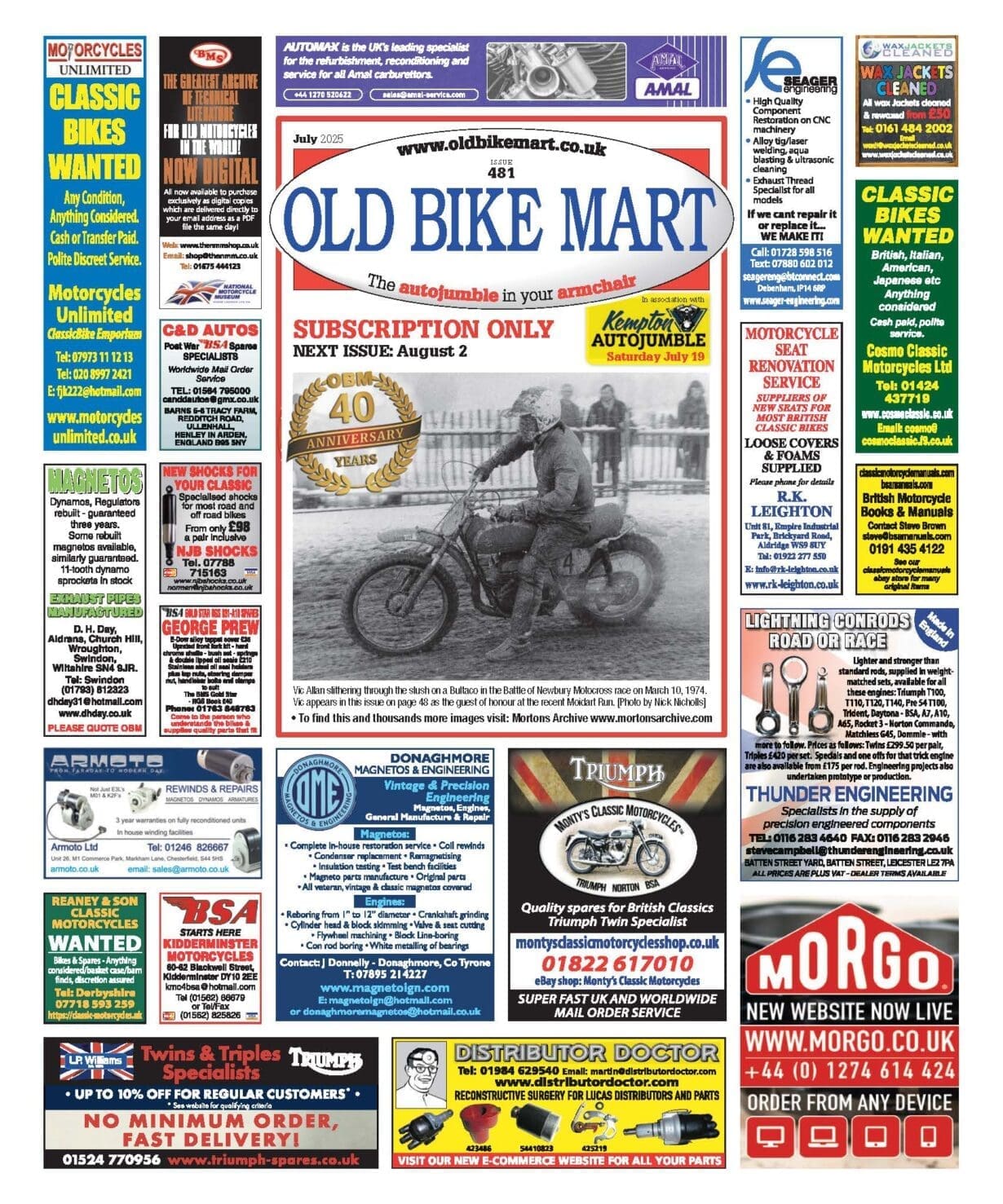Fifty years ago, Yamaha took one final roll of the dice with an engine design that had been part and parcel of their line-up since their very first twin had appeared back in 1959. Steve Cooper takes a closer look.
Although part of the long line of YDS 250cc two-stroke twins, Yamaha took the slightly oddball decision to drop the ‘Y’ prefix which had been part and parcel of the scene from Day One.
For the 1969 model year, Yamaha officially referred to the new, learner legal, quarter-litre machine as the DS6 (or DS6B stateside).
And even today on Yamaha’s own website the bike’s description misses out that letter Y, which is rather odd as the machine that took over from the DS6 was to be called the YDS7… strange logic to say the least!
The DS6 was the final iteration of the long-running vertically split twin engine layout that traced its origins back to early 1950s Germany, as we’ve previously seen.
Quite why Yamaha saw fit to run this engine layout for so long is something of an enigma when, by late 1966, they were ready to launch the horizontally split engine as seen on the YR1 350.
Typical of both the Japanese factories in general, and Yamaha in particular, the final hurrah for the vertically split twins used very little from the outgoing YDS5E.

Why the Yamaha factory even considered tooling up for a new model that was only ever going to be on the sales list for a single year might be anyone’s guess, yet perhaps there was method in their madness.
The YDS5E was what you might call cosmetically challenged and its looks arguably never did do it any real favours.
The DS6 was a serious cosmetic revision of what was there and brought the 250 twin into line with much of the contemporary range.
Gone was the gawky tank with its large and obtrusive rubber knee pads and bolt-on chrome panels; also ousted were the oddly angular side panel and oil tank.
In their place were much more rounded and elegantly proportioned panels that looked almost organic compared to the old model.
Read more in the July 2019 issue of OBM – on sale now!





